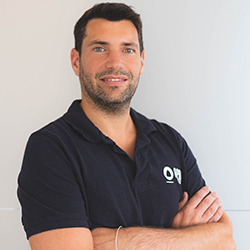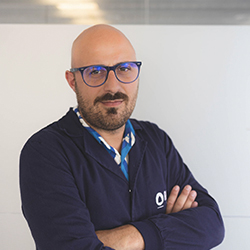APRIA Systems SL
APRIA Systems (APRIA) is a technology-based company located in the north of Spain (Cantabria), awarded by the Spanish Ministry of Economy and Competitiveness as an Innovative SME. It was established in March 2006 as a spin-off of the Advanced Separation Processes R&D group of the University of Cantabria; its activity is strongly focused on innovation to provide sustainable advanced solutions for the purification of industrial streams based on membrane and advanced oxidation technologies. Therefore, APRIA is continuously updating and upgrading its know-how through important R&D investment efforts in order to provide the most innovative solutions. During the last years, APRIA achieved significant participation in European projects, coordinating H2020 (SFS-08-2015) and LIFE projects (LIFE16 ENV/ES/000242 and LIFE20- CCM_ES_001748), and participating in H2020- FET Proact, Interreg, LIFE and PRIMA projects. The main role of APRIA is the definition, design and construction of tailored prototypes based on the innovative technologies defined. APRIA has highly specialized human resources. The current main staff is composed by 10 PhD in chemical engineering and 3 engineers with a broad experience in developing innovation projects focused on improving and upgrading industrial processes.
Research Team
The group involved in ECOMATES is composed by four senior staff members. The team will host and supervise DC10 and will lead WP5 Communication, Dissemination and Exploitation. The senior researchers composing the team are:
 |
Dr. Esther Santos, project manager in APRIA, will supervise DC10 and collaborate in the training and management duties of APRIA Systems. She has expertise in European Projects management including H2020, INTERREG, LIFE, etc. She holds a PhD in Chemical & Process Engineering with more than 10 years of experience in R&D projects related to environmental sustainability. Her work has focused on the development of CO2 capture processes using membrane technology (e.g. non-dispersive absorption, supported membranes, etc.) and CO2 electrochemical valorisation processes. She is part-time assistant professor at UC.
|
 |
Dr. Pedro Manuel Gómez, CEO of APRIA, will contribute to research, training and management. He has more than 15 years of experience in the conception, design, construction and commissioning of facilities for advanced water treatment technologies based on membrane and advanced oxidation technologies. He is expert on the application of separation and purification technologies to secondary effluents. He has been responsible for the execution of more than 15 R&D competitive projects funded by both European and regional public institutions.
|
 |
Dr. Javier Pinedo will contribute to research and training. He is part-time associate professor at UC. Javier manages the R&D projects, both at internal and external level. He joined the company in 2014 and has more than 10 years participating in regional, national and international R&D programmes related to innovative processes to promote sustainable intensification. Expertise in different EU funding programs, including H2020, INTERREG, COST, JPIs, etc
|
 |
Dr. Axel Arruti will collaborate in research and training duties of DC10. He is the responsible of the technical department overseeing the technical feasibility of new products and the design, construction, and commissioning of equipment. He has more than 12 years of experience in performing R&D projects funded by public institutions and private customers related to advanced wastewater treatment by electrochemical technologies. His work has focused on the development of applications and processes on a laboratory scale and pilot plant.
|
Infrastructure
APRIA Systems infrastructure is available to the project requirements. (i) Specialized equipment and tools for engineering and construction of bench and pilot plant setups (i.e. mitre saw, digital multimetre, multifunction tools, etc.). (ii) Testing area with flexible plants: 2 full-scale ELOXIRAS plants, bench-scale plant for tangential membrane separation (UF, NF), bench- scale electrochemical plant including tailored cells with different coatings. (iii) Analytical equipment, including 2 multiparameter bench photometer for aquaculture, portable dissolved CO2 analyser, 2 portable waterproof multiparameter devices to measure pH, oxidation-reduction potential, electrical conductivity, TDS, resistivity, salinity and temperature. Modern project office with a complete set of computers, software, databases and equipment for R&D activities.

